Contrary To Iran’s Claims Exports To Iraq Drop 8%
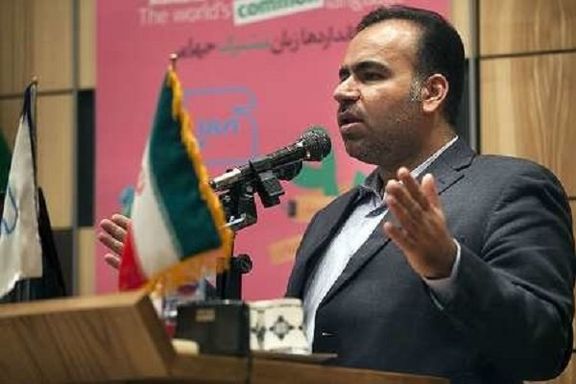
The Iran-Iraq Joint Chamber of Commerce announced on Monday that contrary to government’s claim, Iran's exports to Iraq have decreased in the past five months.

The Iran-Iraq Joint Chamber of Commerce announced on Monday that contrary to government’s claim, Iran's exports to Iraq have decreased in the past five months.
The head of Iran-Iraq Joint Chamber of Commerce, Jahanbakhsh Sanjabi Shirazi, told ILNA that the exports decreased 8 percent in terms of value and 28 percent in terms of weight.
He said the main reason behind the drop is the elimination of cheap government dollars for importing raw material, noting that after its removal prices of Iranian-made products rose above the global baseline, and the first reaction of customers was to stop buying goods.
The drop in Iran's exports to Iraq, which is the country’s second largest trade partner, comes as a member of Iran's Chamber of Commerce admitted in February that Iran is losing Iraq's $30 billion market.
On Sunday, September 11, the head of the Iranian Association of Exporters of Technical and Engineering Services, Bahman Salehi-Javid, said the country’s export of such services has declined to about $500 million from the figure of $5 billion about 10 years ago.
US sanctions have dramatically reduced Iran’s export revenues. Not only Tehran is getting less than half of its usual oil income, but trade in general has suffered because of US banking sanctions, forcing Iran to offer low prices.
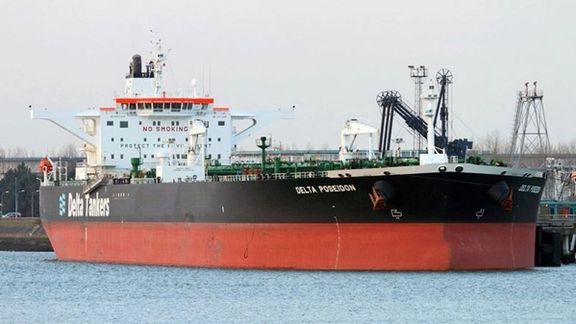
Iran has reportedly released the 49 crew members of two Greek tankers seized by its Revolutionary Guards in May after confiscation of Iranian oil by the US from a tanker off the Greek coast.
A Greek shipping ministry source said on Monday that "a very serious effort has been under way for the return of the Greek crews the soonest possible," without elaborating. Iran had said the crew were not detained and are on board their vessels.
The Greek union of commercial ships' seafarers said Sunday that Iran has agreed to release the crews so they will be replaced, allowing their return to their countries of origin as of Monday. It was not clear whether the two tankers, the MT Prudent Warrior and Delta Poseidon, would be released, a statement on the union’s website added.
Iran's foreign ministry spokesperson Nasser Kanaani did not confirm the information. "We have no confirmation at this moment about a release," he said early Monday, expressing hope that "there would be positive developments in the future".
Tehran allowed the release of the crews after the 100,000 tons of oil originally seized by the Greek authorities at the request of the US was returned to the tanks of the Iranian-owned ship Lana late August.
The Iranian-flagged tanker Lana, formerly Pegas, was seized by Greece in April and was held for months, and the US had confiscated part of its oil cargo due to sanctions. The Iranian Revolutionary Guards' navy seized the two vessels during helicopter-launched raids in the Persian Gulf on May 27, a week after Washington chartered a vessel to transfer the Iranian oil to the US.
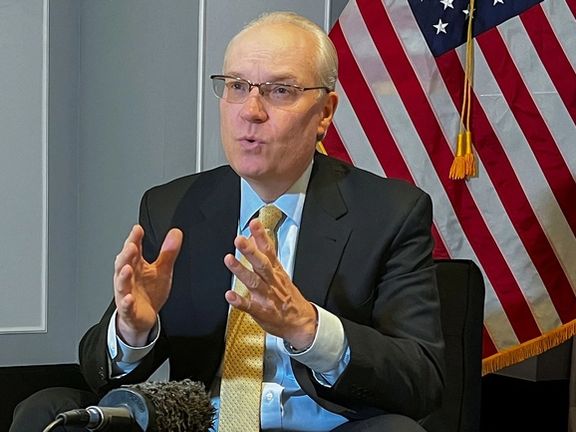
The US special envoy for Yemen says the relationship between the Houthis and Iran has been mostly a “lethal” one, with the Iranians having encouraged the Houthis to launch attacks.
Timothy Lenderking made the remarks in an interview with Arab News on Sunday in Riyadh, where he arrived as part of a diplomatic push to extend a UN-mediated truce in Yemen into a permanent arrangement.
He said the Islamic Republic has “supported the Houthis in developing their military capability, their UAV capability. And that’s been very negative,” criticizing Iran for fueling rather than tempering the conflict.
Describing the truce as an opportunity for the Houthis to show good faith and good will, he said, “From what we know after talking to Yemenis inside Yemen and around the world, there is no appetite for a return to war. There is no capacity for anybody to wish to see this happen.”
Washington’s point man for Yemen also expressed hope that Tehran’s actions would match its words -- welcoming the truce and backing an extended ceasefire -- by supporting the current positive situation as fuel ships and commercial flights are working again.
The Houthis receive military and political support from Iran in their conflict with other Yemenis, who have been backed by a Saudi-led coalition since 2014. Iran has been sharing its missile and drone technology with Yemen’s Houthis and has also supplied other proxy forces, such as the Lebanese Hezbollah and Iraqi Shiite militias.

Just 13 months after Iran’s President Ebrahim Raisi took office, politicians and media speak of a one-term presidency, citing ample signs of weak governance.
Moderate conservative news website Qarn-e No [New Century] in Iran says the widespread belief among Iranian politicians about the end of Raisi's political career in 2025, has given rise to speculations about former Majles (parliament) Speaker Ali Larijani as a candidate for the next presidential election.
The website said that Larijani, a moderate conservative by Iranian standards who was disqualified as a candidate for the 2021 presidential election, will have a chance to run again, particularly now that according to rumors Supreme Leader Ali Khamenei is thinking to appoint Larijani to the key post of arbitrator among the three government branches.
Following Larijani's disqualification in 2021, Khamenei had said that the Guardian Council's decision to disqualify him was "unfair" and called on the conservative dominated council to compensate for its mistake. However, so far nothing has been seen to that effect.
Larijani’s disqualification was widely seen as move to eliminate all serious candidates who could endanger Raisi’s victory, a quest supported by all hardliners loyal to Khamenei. Therefore, despite the Supreme Leader’s comforting words for Larijani, it was never clear if the order to eliminate his presidential candidacy came from Khamenei’s office.
Whether or not these reports and speculations are true or not, Larijani as an adviser to Khamenei, is now enjoying a solid power base.
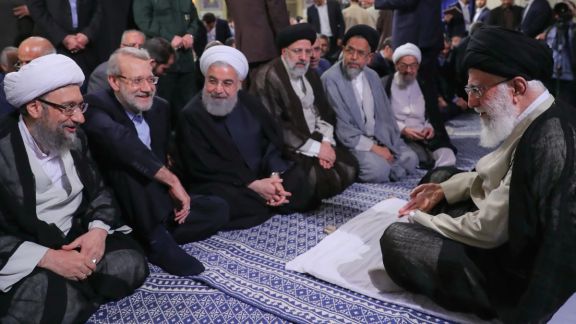
All this is taking place against a backdrop of political turmoil in Raisi's cabinet particularly after his government’s poor handling of the annual mass pilgrimage to shrines in Iraq on Arbaeen. Thousands of people marching to Karbala became ill or dehydrated with no transportation and a place to stay, despite weeks of government propaganda encouraging people to take up the pilgrimage and promises of assistance along the way. Hundreds of thousands of people became stranded at the border crossings and slept in the streets in Iraq.
Other reports say that Raisi will have to fire his road minister Rostam Ghassemi for his shortcomings and one of his Vice Presidents Ensiyeh Khazali after revelations about her son's immigration to Canada with millions of dollars to establish a company there.
In another report, the Qarn-e No wrote that the divide between the government of President Raisi and the people is the widest since 1979 when the Islamic Republic was established. This, the report says is a result of Raisi's failure to fulfil the obligations he undertook and the promises he made to the nation during his election.
In the meantime, Iranian lawmaker Mojtaba Mahfouzi, a member of the Majles Cultural Committee, said in an interview with Didban Iran website on Sunday that "The Raisi administration is obstinate and arrogant, adding that members of his government do not know anything about executive work.
These are probably some of the facts based on which Qarn-e No has concluded that Raisi is likely to be the first Iranian President to serve for only one term.
Mahfouzi said that the Majles is determined to summon and question Interior Minister Ahmad Vahidi for the Arbaeen pilgrimage fiasco.
Meanwhile, Mahfouzi charged that the Raisi administration does not accept any advice from the parliament, and said, “this is no way to run a country.”

Iran’s Social Security Organization has disclosed information about several corruption cases related to petrochemical firms affiliated with it that occurred about 12 years ago.
In an interview released on Sunday, the organization’s managing director Mirhashem Mousavi talked about the cases for the first time to the media, mentioning that one of the cases is worth $2.5 million, another is €2.5 million and a third is about 50 million UAE dirhams.
He said that the cases are being pursued since 2010 and 2011 but no verdict has been issued.
Mousavi added that five high-priced properties, valued at more than half of the total properties of the organization, have been given to others with a deed but the organization has not been able to get more than five percent of the price of one of the properties.
The cases were related to the Social Security Investment Company (SSIC, also known by its Persian acronym SHASTA), one of Iran's major state-owned investment companies, and the investment arm of the Social Security Organization, which provides healthcare and pension benefits for a large population of Iranian middle and working-class members.
The revelations came as a $170 million embezzlement case has left one of Iran’s natural gas producers in serious trouble. Mehr Petrochemicals produces the highest-grade polyethylene in the Middle East but it stands at the verge of bankruptcy, according to Eghtesad Online (Economy Online). The firm belongs to Persian Gulf Holding, a large Iranian quasi-governmental company that claims to be an independent entity, with 15 subsidiaries.
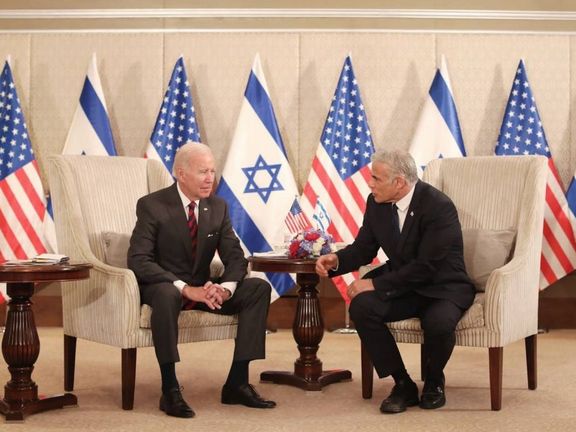
Israel’s Prime Minister Yair Lapid headed to Berlin Sunday claiming to have fruitfully shaped Europe’s “strong position” over Iran, as he gears up for elections.
Lapid has argued that his tactful approach to France, Germany, the United Kingdom, and the Biden administration has been more productive than the assertive stance of his rival Benjamin Netanyahu, as the two men lead their respective political blocs towards Israel’s November 1 parliamentary election.
“Yesterday the E3 countries announced that a nuclear agreement with Iran will not be signed in the near future, that the IAEA’s open files regarding Iran are not about to be closed,” Lapid said Sunday. “Israel is conducting a successful diplomatic campaign to stop the nuclear agreement and prevent the lifting of sanctions on Iran.”
However, what pushed the Europeans to say that there are “no active negotiations” was Iran’s latest response to a European Union draft agreement submitted to Tehran and Washington on August 8. Iran’s response was called “non-constructive” by the Biden administration and seen by the E3 as a sign of lack of willingness to make a deal by Tehran.
If Iran’s response was different after 17 months of talks, the Biden administration had already agreed to the EU draft and the optimism prevailing in August would have been justified.
Iran insists that the International Atomic Energy Agency (IAEA) drop an enquiry into uranium traces found in sites linked to Tehran’s nuclear work before 2003. It also demands various sorts of guarantees from the US.

Time for ‘new agreement’
A “senior Israeli official” told journalists Sunday that the time had come to look for a “new agreement,” leading some Israeli media to proclaim the JCPOA dead. Unless the IAEA, Iran and the US together with the E3 change their minds, “there won't be any choice” but to abandon the 2015 deal, the Israeli official reportedly said.
Lapid said the aim of his trip to Germany was to coordinate “positions on the nuclear issue” and that he would be “finalizing the details of the strategic, economic, and security cooperation document we are going to sign.”
Lapid also stressed Israel was “working to prevent Iran from establishing terrorist bases throughout the Middle East and especially in Syria.” Israel regards Lebanon’s Hezbollah, a close Iranian ally, as well as most Palestinian groups as ‘terrorist.’ Lapid said there was a “growing terror threat in the West Bank,” according to the Jerusalem Post.
Consulting partners
The E3, apparently short of declaring the JCPOA talks dead as Lapid suggested, said it would “consult, alongside international partners” on how best to proceed, both over the continued expansion in Iran’s nuclear program and its failure to satisfy the IAEA over the uranium traces.
In Iran, some argue Europe’s attitude towards the talks may change as winter brings energy shortages due to sanctions on Russian energy exports and European leaders eye Iran’s 90 million barrels of oil in storage, which would be released with US sanctions eased should the JCPOA be restored.
Ali Akbar Salehi, who was head of the Atomic Energy Agency of Iran (AEOI) when the JCPOA was signed in 2015, defended the agreement this week against critics by arguing it had not fundamentally stymied Iran’s technological progress. Hence, Salehi argued, the AEOI had been quickly able to expand the program once parliament, in the wake of the November 2020 had passed legislation requiring a higher level of uranium enrichment and employing more advanced centrifuges.